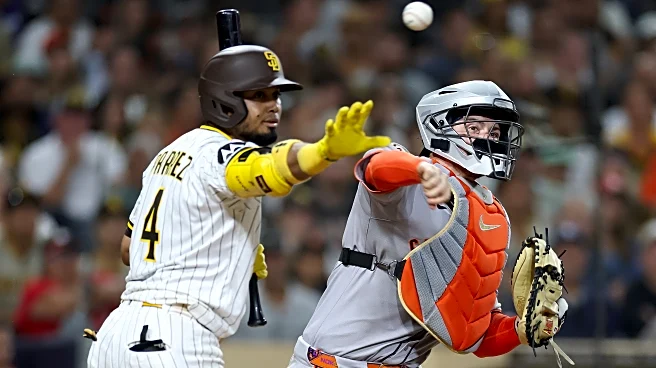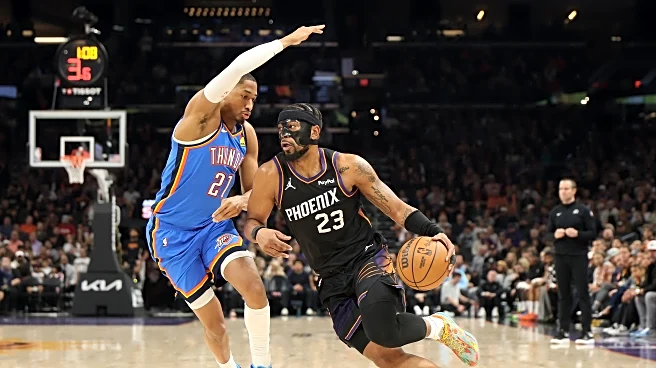As the San Francisco Giants and San Diego Padres were taking the field for Tuesday night’s baseball buffoonery, I channeled the energy of my coworker Bryan Murphy and took to Bluesky with a somber reality.
I had labeled the game, before it even began, a lose-lose for the Giants. If they were to actually lose, it would be a reminder that, really, if we’re being honest, the last two games mean nothing at all, and this is still a team that has been somewhere between god-awful and Mays-awful for a few months now. But if they won? Well, that would just give you a slightly larger hit of irrational hopium before the inevitable crash to reality, which would likely come on Wednesday.
I don’t usually dabble in such cynicism, but it was warranted and it was accurate. Tuesday would go one of two ways: it would serve as a crushing reminder, or build you up a little higher before said crushing reminder.
It was the former.
Tuesday’s game started the same way as Monday’s: with a leadoff home run, this time courtesy of Jung Hoo Lee, who had a delightful day, which featured a double and his first homer since the ‘90s (that’s the name I use for May 14).
And, just as was the case on Monday, the Giants wouldn’t score in innings two through nine. But, unlike on Monday, there was no follow-up to the leadoff dinger. There was no second or third jack, no second, third, or fourth run. Two pitches into Nick Pivetta’s game and the Giants had scored; they wouldn’t score on any of his other 107 pitches, or on any of the 12 from Adrian Morejon, or the 16 from Jason Adam, or the 10 from Robert Suárez.
Unlike on Monday, the Giants starting pitching was just bad enough, instead of just good enough.
It was a bit of a roller coaster for Kai-Wei Teng, who was given a second crack against the dangerous Padres lineup, six days after partaking in arguably the worst inning of the year for the Giants, in which he lost control but kept the vehicle steadied just enough to get out of the inning, had it not been for stupendously awful defense and even worse luck.
At first glance, it appeared that Teng was headed for a cruel replay. The very first pitch he threw, a challenge fastball to Fernando Tatis Jr., was grounded right at the shortstop station, where Christian Koss found himself starting for just the second time all year. Koss handled the hop cleanly, but threw the sort of throw in which a player can be seen exasperatedly reacting to their own error seemingly before they’ve even made it, and Tatis reached safely.
Three pitches later, Teng was dealt his latest reminder that MLB hitters are an entirely different breed than the sort that populates AAA, when a well-executed 0-2 pitch, a good four inches inside, was somehow turned into a double by contact wizard Luis Arráez (who, it’s worth noting, has struck out exactly one time in 28 career games against the Giants).
With no outs and runners on second and third, Teng was able to induce the weakest of ground balls from one of the most feared hitters of this generation, Manny Machado. Such weak contact, in fact, that Casey Schmitt had no chance to make a play at home, and needed a highlight performance just to get the out at first.
An error, an 0-2 pitch on the hands, and a 500-homer bound slugger hitting a ball two feet and 65.3 mph, and suddenly the Padres had scored the tying run, and put the go-ahead runner on third with just one out. You had to feel sorry for Teng, who certainly hasn’t made his own luck this year, but hasn’t made disastrous misfortune, either. Teng, however, did not feel sorry for himself. Facing a feared slugger — and a lefty at that — in Ryan O’Hearn, Teng broke out some of his nastiest spin, and broke down San Diego’s cleanup hitter for a huge strikeout.
He followed with a K of Xander Bogaerts to end the tough-luck inning about as unscathed as possible. And there wouldn’t even be a follow-up of the disastrous second inning, as he took down the side in order with another pair of strikeouts.
But the fourth did him in. O’Hearn exacted revenge with a leadoff single, and Teng plunked Bogaerts. After a fielder’s choice, he hit another batter to load the bases, then ceded an RBI single to Jose Iglesias, before ceding the ball to Bob Melvin.
It was an odd performance. It’s hard to call it unlucky, first inning aside, but all three hits he allowed were hit softer than 90 mph, and all had an expected batting average below .500 (including Arráez’s double, which sat at a meager .290). And he did the one thing the Giants have been imploring their pitchers to do all year, the very thing that got Hayden Birdsong and Carson Whisenhunt Returned To Sender in Sacramento: throw strikes without allowing home runs.
He threw 53 of his 80 pitches for strikes, but at the same time, that highlighted the issue. Teng, the most prolific strikeout artisan in the Pacific Coast League this year, was able to find the strike zone repeatedly, but couldn’t find a way to put hitters to bed. The penultimate batter he faced, Gavin Sheets, felt like the defining moment of the game for Teng. The righty flopped in a pair of curveballs that Sheets patiently watched, creating a quick 0-2 count. Teng then tried the curveball three more times, with Sheets fouling it off each time. He finally switched to the heater, but Sheets fouled it off. Once more with the curveball, and once more fouled off. Finally, on the eighth pitch of the at-bat — and still in an 0-2 count — some desperation showed as Teng expanded the strike zone so far with his curveball that he hit Sheets. His night felt over then, and it was four pitches later when, fittingly, Iglesias singled on an 0-2 pitch.
In all, Teng threw 32 pitches in two-strike counts, and of those 32, four were swinging strikes, 10 were balls, 11 were fouls, two were hit batters, two were outs in play, and three were hits. He threw first-pitch strikes to 14 out of 17 batters, and was never burned on one of those first-pitch strikes. There was a whole lot to like, in a package that simply isn’t working.
And, unlike on Monday, the bullpen didn’t fully have his back, either. Part of that is because he left the game in the fourth inning with a 2-1 deficit, where Robbie Ray left Monday’s game in the seventh inning with a 4-3 lead. There were fewer innings to cover a day prior, and they were more important ones, and so they got the pitchers at the top of the pecking order.
On Tuesday, not so much. Teng handed the ball to Melvin who handed the ball to his favorite “oops, there’s a spill in aisle four to clean up” option, Spencer Bivens who, after getting one productive out, proceeded to walk Tatis on four pitches, scoring a third run. That run was credited to Teng, but Bivens got one on his ledger in the fifth, and Carson Seymour followed with one in the sixth.
The offense, meanwhile, hummed along as they have been for months, which is to say ineffectively. They had just three at-bats with runners in scoring position and, as you can probably guess, went 0-3. They struck out 10 times against Pivetta and 12 times total. They didn’t have any of the four hardest-hit balls of the game. They scored half as many runs as there were interruptions for security guards to tackle fans who ran onto the field.
They lost 5-1. And whatever positive thoughts you were tempted to feel after Sunday and Monday were promptly eradicated with a swift reminder as to who, exactly, this team is.










